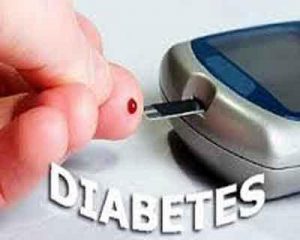- Home
- Editorial
- News
- Practice Guidelines
- Anesthesiology Guidelines
- Cancer Guidelines
- Cardiac Sciences Guidelines
- Critical Care Guidelines
- Dentistry Guidelines
- Dermatology Guidelines
- Diabetes and Endo Guidelines
- Diagnostics Guidelines
- ENT Guidelines
- Featured Practice Guidelines
- Gastroenterology Guidelines
- Geriatrics Guidelines
- Medicine Guidelines
- Nephrology Guidelines
- Neurosciences Guidelines
- Obs and Gynae Guidelines
- Ophthalmology Guidelines
- Orthopaedics Guidelines
- Paediatrics Guidelines
- Psychiatry Guidelines
- Pulmonology Guidelines
- Radiology Guidelines
- Surgery Guidelines
- Urology Guidelines
Low-calorie sweeteners predispose to metabolic syndrome & diabetes

Metabolic syndrome is a group of risk factors which includes high blood pressure, high blood sugar, unhealthy cholesterol levels and abdominal fat.It doubles the risk of blood vessel and heart disease leading to MI and strokes and it increases the risk of diabetes by three to five times.A new study conducted by Sabyasachi Sen, Associate Professor of Medicine at George Washington University in Washington, D.C and associates on human fat-derived stem cells and fat samples suggests that Consumption of low-calorie sweeteners could promote metabolic syndrome and predispose people to prediabetes and diabetes, particularly in individuals with obesity . The research results have been presented Sunday, March 18, at ENDO 2018, the 100th annual meeting of the Endocrine Society in Chicago, Ill.
"Our stem cell-based studies indicate that low-calorie sweeteners promote additional fat accumulation within cells compared with cells not exposed to these substances, in a dose-dependent fashion--meaning that as the dose of sucralose is increased more cells showed increased fat droplet accumulation," said Sabyasachi Sen, M.D., Associate Professor of Medicine at George Washington University in Washington, D.C. "This most likely occurs by increasing glucose entry into cells through increased activity of genes called glucose transporters."
In addition to stem cells, the researchers also studied human fat samples collected from individuals with obesity who consumed low-calorie sweeteners. They found similar changes in gene expression in the same genes with increased activity of glucose transporters in both the stem cells and the fat cells, Sen noted.
He noted these findings are of greatest concern for people who have obesity and prediabetes or diabetes, since they are already at heightened risk of heart attacks and strokes. "We think the effect is more pronounced in overweight and obese people rather than their normal weight counterparts because they have more insulin resistance and may have more glucose in their blood," he said.
Sen and his colleagues tested sucralose, a popular low-calorie sweetener, on stem cells--cells that could change into mature fat, muscle, cartilage or bone cells--taken from the human fat tissue. They placed these cells in Petri dishes for 12 days in media that promotes fat production, to mimic an environment that promotes obesity.
At a 0.2-millimolar sucralose dose similar to the concentration found in the blood of people with high consumption of low-calorie sweeteners--equal to four cans of diet soda per day--the researchers said they observed increased expression of genes that are markers of fat production and inflammation.
With this evidence, the investigators then conducted a separate experiment. They analyzed biopsy samples of abdominal fat obtained from 18 subjects who said they consumed low-calorie sweeteners (mainly sucralose and a trace of aspartame, and/or acesulfame potassium).
Four of the subjects were healthy weight, and fourteen had obesity. In the healthy weight subjects, the difference in gene expressions were not significant. However, in the subjects with obesity or overweight, the researchers noted significant evidence of increased glucose (sugar) transport into cells and overexpression of known fat-producing genes, compared with fat biopsy samples from subjects who did not consume low-calorie sweeteners.
Sen previously conducted the same study on a total of eight subjects with similar results. "Because we found the same results with the, larger sample size, we have much more confidence that low-calorie sweeteners are causing metabolic dysfunction," Sen said.
In a new cell culture study, Sen found that sucralose appears to promote oxygen radical accumulation - a highly reactive particle that can cause disease and inflammation inside cells. These oxygen radicals interfere with cell activity and slow down metabolism, which promotes accumulation of fat in the cell. "This provides another explanation of how sucralose may interfere with metabolism," he said.

Disclaimer: This site is primarily intended for healthcare professionals. Any content/information on this website does not replace the advice of medical and/or health professionals and should not be construed as medical/diagnostic advice/endorsement or prescription. Use of this site is subject to our terms of use, privacy policy, advertisement policy. © 2020 Minerva Medical Treatment Pvt Ltd